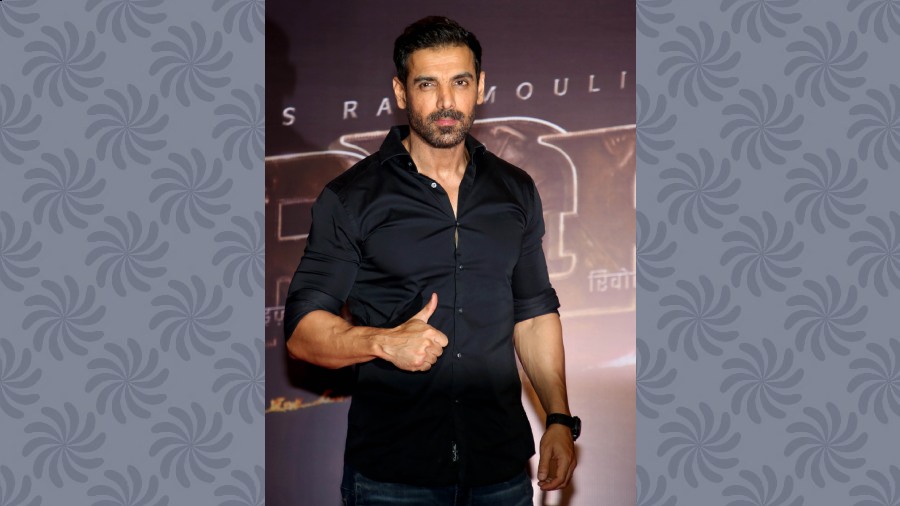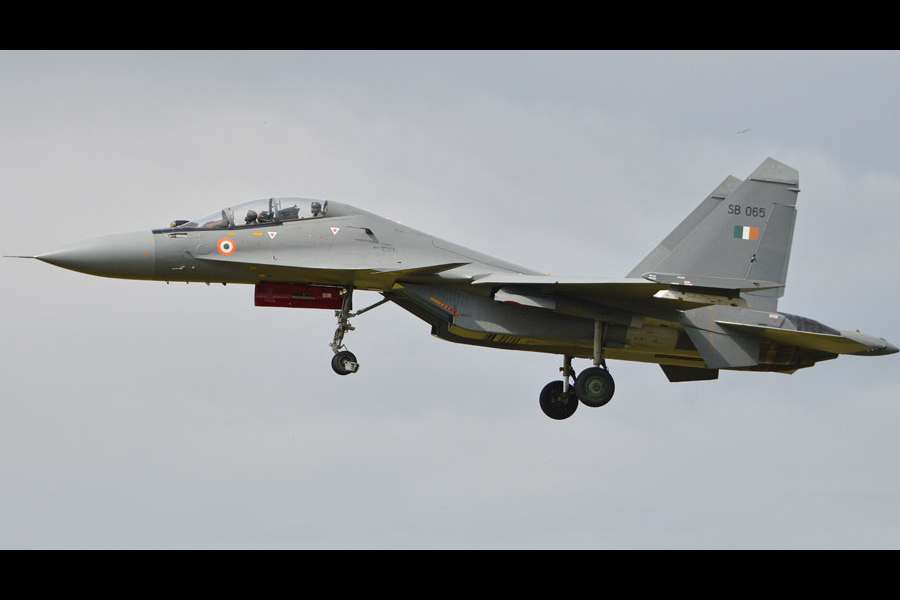With the downing of masks and the opening up of theatres, the pre-lockdown affliction of boosting a new release has begun. The latest is a dystopic, misogynistic Kannada film that’s being passed off as pan-Indian because of the new RRR ingredient that regional filmmakers have discovered. Sign a name or two from the Hindi film industry and, viola, a regional film turns into a national one.
So KGF Chapter 2 has also got Sanjay Dutt as one of its antagonists and Raveena Tandon as the Prime Minister of India. Although technically polished, this film — which gorges on people’s misery and has the heroine forcibly brought to the hero’s mansion where he pronounces her as his “entertainment” — was predicted to create box-office history. Shahid Kapoor’s long overdue Jersey’s release was even postponed by a week, afraid that the Kannada “blockbuster” would eat into its business.
KGF, without any nationally known stars in it, had done well in Hindi in 2018. And so, an advance craze was whipped up for the sequel. But, if truth be told, only two films have been genuine money-rakers in recent times — diametrically opposite films The Kashmir Files and RRR. Even Gangubai Kathiawadi, which was well-received, was not a profit-making venture going only by its ticket collections. But it can be labelled successful because of the decent business it did in tentative times and the overall profits that’ll come in from other avenues.
So celebrations were justified when producer Jayantilal Gada, who had put his money on Gangubai, RRR and John Abraham’s Attack — all of which were released in quick succession — threw a big party for his 60th birthday. The celebs who were on the red carpet are all over the Internet.
But inside was where the real action was. There was Shabana Azmi resisting Padmini Kolhapure, who was coaxing her to try the aamras-puri. “Imagine asking a good Muslim like me, used to biryani and kebabs, to have aamras-puri,” Shabana wisecracked. Padmini herself is no aamras-puri girl. Once, when we were at a restaurant in Norway, she and sister Tejaswini had whacked, cracked and tucked into lobsters and crabs.
Also at the party was Anil Kapoor. His secret for fitness: apart from Sunita’s calorie-supervised home menus, he won’t go to sleep until his watch has clocked a minimum of 12,000 steps every day.
John was much mobbed. Unfortunately, his expensive, special effects-laden Attack fell, as most films do when they’re not sure which way they’re heading. An action film with artificial intelligence as its theme, it neither appealed to those who appreciate AI nor pleased the masses that wanted bone-crunching action. It went jingoistic with patriotic fervour too but with digs like “The home minister is in love with the prime minister” and “These days the army kuch zyada hi josh mein hai”, it seemed unable to make up its mind which side it was on.
Javed Akhtar and Prakash Raj, who was in Attack and in the Kannada, oops, pan-India film KGF 2, are on the same side of the political fence and obviously know each other well. When I was chatting with Prakash, Javed came in and I said, “Javed, you know Prakash.”
“I think he acts in films, right?” jested Javed. To which Prakash promptly reparteed, “I think he writes, doesn’t he?”
Prakash, who is married to choreographer Pony Verma, said with a poker face, “Pony and I are not married. That’s why we’re still friends.”
With marriage in the air, it’s a good point for newly-weds: be friends forever.
Talking of marriages, here’s a lovely PS. A star couple that wed in January 1980 had their first baby in September the same year. It had prompted another actor, who also got married that year but who became a dad one year later, to gloat publicly, “At least we don’t have to claim that our babies were born prematurely.” Those really were colourful and politically incorrect times.
Bharathi S. Pradhan is a senior journalist and author











